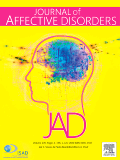
research spotlight:
Self-compassion and fear of self-compassion: Mechanisms underlying the link between child maltreatment severity and psychological distress in college women.
Messman-Moore, T. L. & Bhuptani, P. H. (2020). Self-compassion and fear of self-compassion: Mechanisms underlying the link between child maltreatment severity and psychological distress in college women. Mindfulness, 11, 1446-1459.
doi: 10.1007/s12671-020-01361-2
ABSTRACT
Women are at increased risk for depression and anxiety associated with child maltreatment, given higher rates of exposure to childhood maltreatment and a greater sensitivity resulting in maltreatment-related distress. Thus, there is a need to identify mechanisms of resilience among female survivors of child maltreatment. Self-compassion may promote resilience, whereas fear of self-compassion may diminish this protective effect. Moreover, distinct facets of self-compassion (e.g., self-kindness) versus self-coldness (e.g., self-judgment) may differentially explain risk or resilience for child maltreatment outcomes. College women (N = 586) completed anonymous online surveys assessing the severity of different types of child maltreatment, self-compassion, fear of self-compassion, depression, anxiety, and stress. Severity of sexual, physical, and emotional abuse, and emotional and physical neglect, was positively associated with elevated fear of self-compassion and the absence of self-compassion (i.e., self-coldness). In contrast, emotional abuse and neglect severity were the only maltreatment variables negatively associated with self-compassion. Models indicated an indirect relation between increased maltreatment severity and heightened psychological distress via fear of self-compassion and self-coldness (i.e., isolation, overidentification). Statistical patterns indicative of suppression among the positive facets of self-compassion occurred. The centrality of emotional maltreatment, along with fear of self-compassion, isolation, and overidentification, emerged across analyses. Findings suggest the absence of self-compassion (i.e., self-coldness) is associated with specific forms of distress. Additional research with child maltreatment survivors should examine self-compassion components rather than a unidimensional construct.
.jpg)

Terri
Prachi



